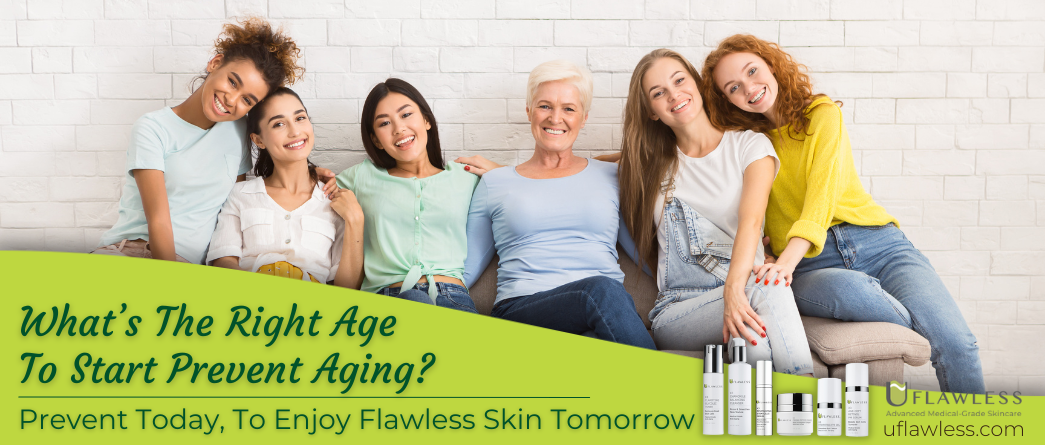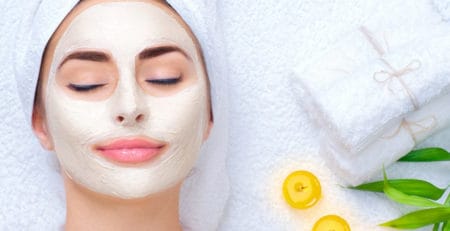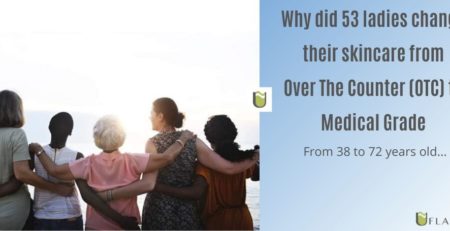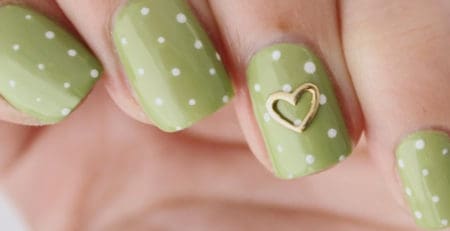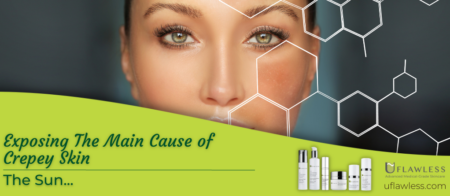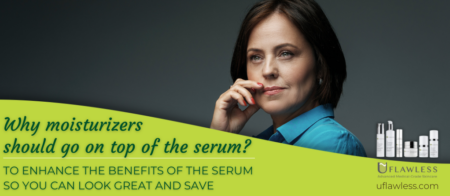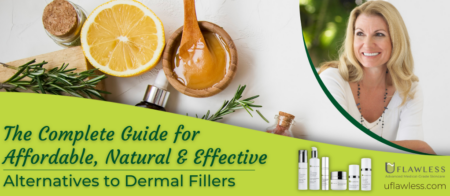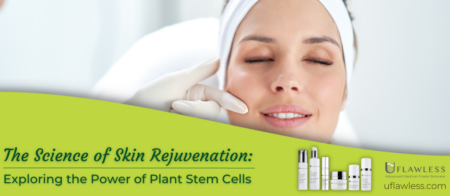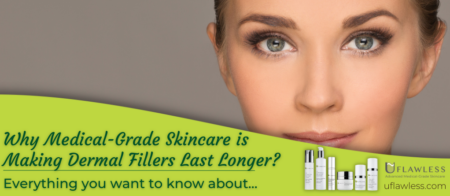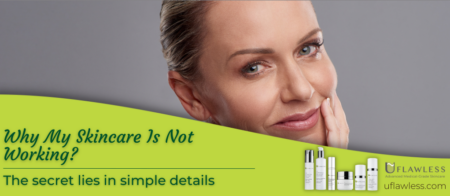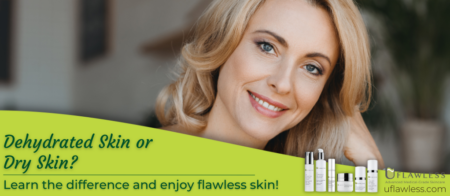What’s The Right Age To Reverse Aging Skin?
Many people believe it’s too late to make a difference in their skin’s appearance. But what is the perfect age to reverse aging skin?
Here’s the truth: it’s NEVER too late to start taking care of your skin and achieve that flawless glow!
With the right products and a consistent skincare routine, you can start seeing improvements at any age.
The key is to start now and follow a few essential steps.

The best way to prevent premature aging is by mastering the basics – Cleanse, Treat, and Moisturize.
These three simple steps are the foundation of healthy, radiant skin, regardless of age.
This approach transcends age, beliefs, skin color, and religion—it’s universal.
Each step in your skincare routine serves a crucial purpose. In this article, we’ll explore the details and put down some myths, empowering you to step confidently into flawless skin.
Cleansing: The First Step in Preventing Aging Skin
Just like any other organ in our body, the skin serves as a protective barrier, shielding our internal organs from external threats.
It’s our first line of defense against environmental factors that could cause harm.
The skin is made up of several layers, and it’s in the deeper layers where youthful skin cells are naturally produced.
These cells are the hallmark of healthy, vibrant skin—they’re elastic, plump, and toned.
Three essential components contribute to the youthful appearance of youthful skin cells:
- Collagen: Making up 70% to 80% of our skin, collagen is a structural protein that holds everything together in our body, from bones and tendons to the skin. Without collagen, our skin would lose its structure and we’d be left flat and unsupported.
- Elastin: This protein is crucial for skin elasticity and resilience. Like a rubber band that snaps back into shape after being stretched, elastin helps your skin return to its original form after movement or pressure.
- Hyaluronic Acid: Naturally produced in the body, hyaluronic acid is found in connective tissues and is responsible for retaining moisture. It keeps our skin, joints, and eyes hydrated by holding water within these structures.
Understanding these components highlights why cleansing is such a critical step in preventing aging skin—it sets the stage for maintaining and enhancing these natural building blocks.
Nourishing Youthful Skin Cells Is The Key To A Natural Healthy Look
As mentioned earlier, the body naturally produces collagen, elastin, and hyaluronic acid—three essential components for youthful, healthy skin.
These components are at their peak production during our teenage years and continue strongly into our late 30s and early 40s.
However, as we age, this production gradually declines by about 1% each year.
This natural slowdown is why we often start to notice the first signs of aging—fine lines, wrinkles, and dark spots—around this time.
Without proper care and prevention, this decline can lead to more pronounced signs of aging, such as sagging skin, blemishes, and dark patches.
Nourishing your skin cells properly during this phase is key to maintaining a healthy, vibrant appearance as you age.

The Power of Early Prevention: Starting Between Ages 30 to 35
Starting a skincare routine to prevent aging between the ages of 30 and 35 is one of the best decisions you can make for long-term skin health.
By investing in your skin early, you set the stage for enjoying flawless skin well into your 50s and beyond.
But why is early prevention so effective?
Think of your skin like a savings account. The care you give it now will pay off significantly in the future, allowing you to maintain youthful, vibrant skin while others are just beginning to think about prevention.
The Importance of Addressing the Top 3 Factors of Premature Aging
Preventing aging isn’t just about keeping your skin hydrated. It’s also about protecting it from the top three contributors to premature aging: sun exposure, stress, and pollution.

Sun Exposure Is The #1 Factor For Premature Aging:
-
- Scientific Data: Ultraviolet (UV) light from the sun is widely recognized as the leading cause of premature skin aging. Studies show that up to 80% of visible aging signs, such as wrinkles and fine lines, are due to UV exposure.
-
- Why It Matters: UV light penetrates deep into the skin, causing oxidative stress and damaging the DNA in skin cells. Over time, this leads to the breakdown of collagen and elastin, resulting in sagging and wrinkling of the skin.
Stress is the #2 Premature Aging Factor
-
- Scientific Data: Chronic stress has been shown to accelerate the aging process by increasing the production of cortisol, a hormone that breaks down collagen and elastin. High cortisol levels are also associated with reduced skin barrier function, making the skin more prone to wrinkles and lines.
-
- Why It Matters: The hormonal changes caused by stress significantly impact skin health, leading to the early formation of wrinkles and a loss of skin elasticity.
Pollution The #3 Premature Aging Factor
-
- Scientific Data: Environmental pollutants, such as cigarette smoke and urban air pollution, contribute to skin aging by generating free radicals. These free radicals cause oxidative damage to skin cells, accelerating the breakdown of collagen and leading to the formation of dark spots, fine lines, and wrinkles.
-
- Why It Matters: Regular exposure to pollutants triggers the body’s defense mechanisms, which, over time, can lead to a worn-out appearance of the skin.
How we can benefit from sun exposure without compromising the premature aging factor?
There’s no denying the sun’s benefits for our overall health.
In fact, it’s our most important source of Vitamin D, which is vital for the body.
Even with supplements, nothing can fully replicate the natural benefits of sunlight on our skin.
When we’re exposed to sunlight, our skin absorbs Vitamin D, which is crucial for the formation of healthy bones, teeth, muscles, and tissues.
This is because Vitamin D helps the body absorb essential minerals like phosphate and calcium.
However, the key to reaping these benefits while minimizing the risk of premature aging lies in controlled sun exposure:
- Optimal Exposure Times: During the summer, aim for sun exposure between sunrise and 10 a.m. or from 4 p.m. to sunset.
- Daily Exposure: 10 to 15 minutes of daily sun exposure is sufficient. Beyond this, sunscreen with at least SPF 30 becomes essential.
- Protective Measures: If you’re at the beach, pool, or running outdoors, don’t forget to wear a hat, and UV-protective clothing, and apply sunscreen.
- Hydration: Always drink plenty of water while spending time in the sun to stay hydrated and support your skin’s health.
While the sun provides essential benefits, it’s also the primary cause of premature aging.
Ultraviolet (UVA/UVB) and High Energy Visible (HEV) light emitted by the sun triggers the production of free radicals in the skin.
These free radicals are responsible for sunspots, sagging skin, fine lines, and wrinkles.
If you’re not following these protective steps, the chances of experiencing premature aging signs increase significantly.
Why Is Stress a Premature Aging Factor for the Skin?
Stress isn’t just harmful to your overall health—it also takes a serious toll on your skin.
When you’re stressed, your body releases hormones like cortisol and adrenaline, which trigger a cascade of effects that can age your skin prematurely.
Here’s the effect of stress on your appearance:
- Increased Oil Production: Cortisol can cause your oil glands to produce more oil, leading to clogged pores and breakouts.
- Skin Irritation: For some, these stress hormones can trigger skin issues like irritation, hives, eczema, and psoriasis.
- Accelerated Aging: In others, stress can manifest as sunspots, sagging skin, and wrinkles, accelerating the visible signs of aging.
The best way to protect your skin from these effects is to manage stress effectively.
Keeping calm and finding ways to reduce stress can help maintain your skin’s youthful appearance.
Cigarette Smoke Is A Major Threat to Your Skin
Most of us know that cigarette smoke is extremely harmful to our overall health.
But if you’re still in doubt, the damage it causes to your skin is undeniable.
Cigarette smoke contains over 4,000 chemicals, many of which are directly damaging to your skin.
These chemicals break down the collagen and elastin fibers that are crucial for maintaining your skin’s firmness and elasticity.

- Oxidative Stress: The oxidative stress induced by smoking increases the production of free radicals in the skin, which further damages skin cells and speeds up the aging process. This oxidative stress also weakens the skin’s protective barrier, making it more susceptible to environmental damage (British Journal of Dermatology, 2010).
By understanding the science behind these effects, it becomes clear why avoiding cigarette smoke is crucial for maintaining healthy, youthful skin.
Scientific Evidence Showing How Cigarette Smoke Damages Your Skin:
- Collagen and Elastin Damage: Studies show that the chemicals in cigarette smoke, particularly those that generate free radicals, accelerate the breakdown of collagen and elastin. This process leads to sagging skin, wrinkles, and premature aging (Department of Dermatology, University of Michigan Medical School, 2002).
- Reduced Blood Flow: Nicotine, one of the primary chemicals in cigarettes, causes blood vessels to constrict, reducing blood flow. This constriction limits the amount of oxygen and essential nutrients reaching your skin, which impairs its ability to repair and regenerate (Journal of Investigative Dermatology, 2009).
What’s the Best Age to Start Preventing Aging Skin?
The simple truth is that the earlier you start caring for your skin, the better.
However, it doesn’t make sense to begin using anti-aging creams and moisturizers at a very young age.
For most people, the first interactions with skincare products begin during puberty when acne, pimples, and breakouts make their unwelcome appearance.
While dealing with these skin issues can be challenging, learning how to manage them effectively sets the foundation for healthy, flawless skin later in life.
By establishing good skincare habits early, you’re setting yourself up for long-term skin health and vitality.
What Can You Do Today to Start Preventing Premature Aging?
Taking proactive steps today can make a significant difference in how your skin ages over time.
Here are some essential practices to incorporate into your daily routine:
Use a Broad-Spectrum Sunscreen
Applying broad-spectrum sunscreen daily is one of the most effective ways to protect your skin from premature aging.
Broad-spectrum sunscreens shield your skin from the harmful effects of UVA and UVB rays, which are primarily responsible for sunburn, skin damage, and wrinkles.
Additionally, they protect against High Energy Visible (HEV) light, often emitted from screens and other artificial sources, which can also contribute to skin aging.
Choose a sunscreen with at least SPF 30, and make it a habit to reapply throughout the day, especially if you’re spending time outdoors.
Stay Hydrated by Drinking Plenty of Water
Hydration is key to maintaining healthy, youthful skin.
Drinking plenty of water helps your body flush out toxins more efficiently, which can lead to clearer skin.
Adequate hydration also keeps your skin cells plump and hydrated from the inside out, reducing the appearance of fine lines and promoting a radiant complexion.
Aim for at least eight glasses of water a day, and consider increasing your intake if you’re in a hot climate or engaging in strenuous activities.
Wear a Hat and Sunglasses
Sun protection doesn’t stop at sunscreen. Wearing a wide-brimmed hat and UV-blocking sunglasses provides additional protection for your face and eyes.
These accessories help shield your skin from direct sunlight, reducing your exposure to harmful UV rays that can cause wrinkles, sunspots, and other signs of aging.
They also protect the delicate skin around your eyes, which is particularly susceptible to damage.
Moisturize Regularly
Moisturizing is essential for maintaining your skin’s moisture barrier and preventing dryness, which can accelerate the appearance of aging.
When applied topically, moisturizers lock in moisture, keeping your skin hydrated and soft.
Choose a moisturizer that suits your skin type and contains hydrating ingredients like hyaluronic acid, glycerin, or ceramides.
While topical moisturizers work on the surface, staying hydrated by drinking water complements this by nourishing your skin cells from the inside.
It’s An Everyday Process!
Incorporating these practices into your daily routine, you can effectively combat premature aging and keep your skin looking youthful and healthy!


